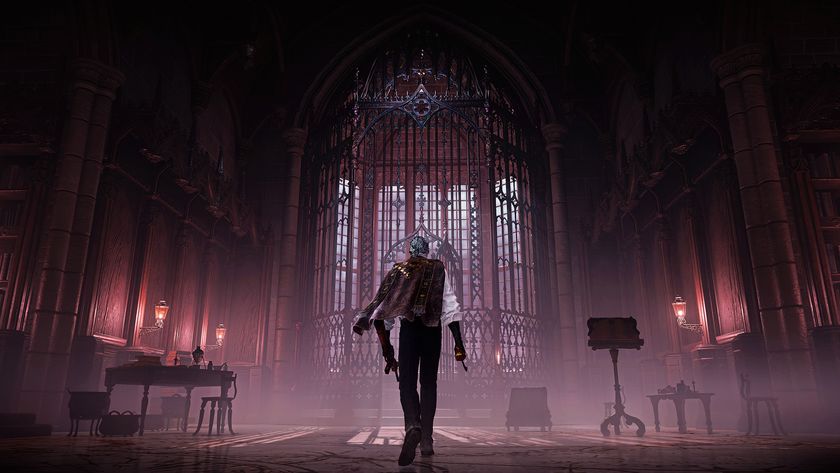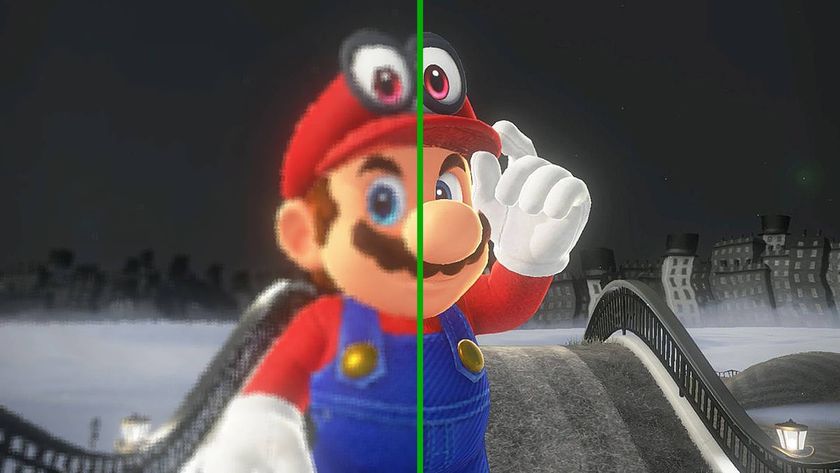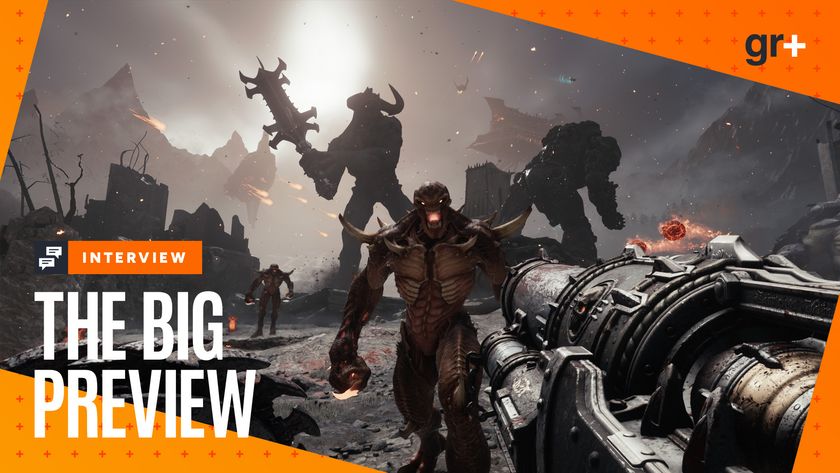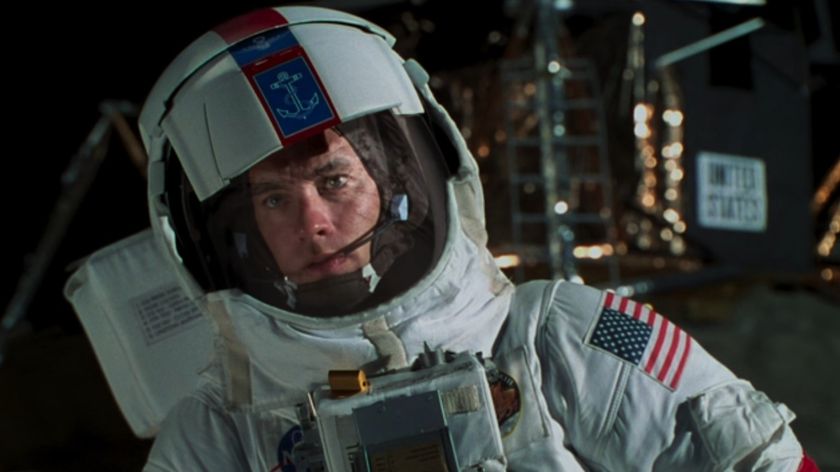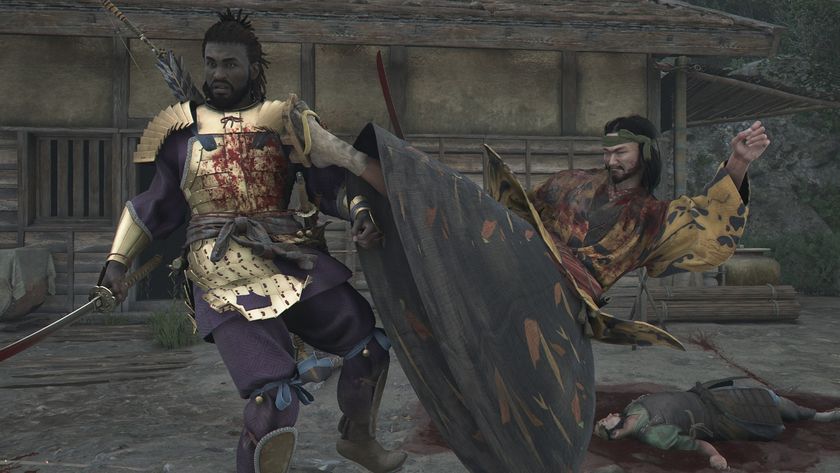Black Swan: Behind The Scenes
Darren Aronofsky, Vincent Cassel and Mila Kunis talk about their ballet psychodrama
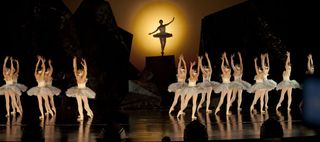
Aronofsky on performance
Could you perform on the other side of the camera?
Darren Aronofsky: I think in this case it’s about performers who use their body as their art, and it’s very interesting that they’re [Nina and Randy] doing totally different things but they actually doing very similar things to their bodies, and they have similar pressures on them. I don’t know, it’s just interesting.
And could I do what they do, as in performing? No, I’m not interested in that. Being interviewed is the closest I get to performing. It’s not for me. I was sort of shy, it wasn’t my cup of tea.
I like to experience through other people’s deep emotions and try and help them to find places, and witness that, then put it together. I’m a project guy, I think.
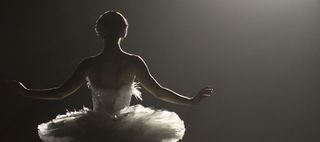
Aronofsky on his inspiration
Where did you find Black Swan's source material?
DA: I had been reading The Double , by Dostoyovesky, which is about a guy who wakes up and someone is taking over his life. I thought that was a good scary thing - that your identiy could be taken away from you - that a lot of people could relate to.
And then I went to see Swan Lake – which I had never seen before, I knew there were girls in tutus but I didn’t know anything about it – and then to see one dancer playing the Black Swan and the White Swan, I kind of had a eureka moment.
I was like “This is better than a double, because she is actually two different characters competing for the love of the Prince!" So that was a good starting point.
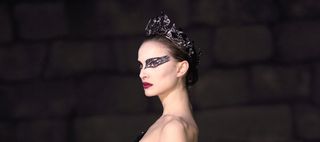
Cassel and Kunis on working with Aronofsky
Had you both wanted to work with him for a long time?
Vincent Cassel: I never think in that sense, I never think “Oh God! I want to work with Darren Aronofsky!” – but let me tell you, the first time I saw Pi I was very interested because I thought it was very European first of all, and though I didn’t understand the story, I loved it.
It’s true – I can’t tell you what it’s about – but I remember that there was this grainy thing about it, that was kind of lost in Requiem for a Dream , and it came back with The Wrestler , and it’s present again in this one.
He has a gritty style, you know. Visually and in terms of what he likes to talk about. The perversion, the control, all these things.
So I never thought “Oh my God I want to work with him!” But when he called me, I was very happy.
Mila Kunis: Even before I read the script I said to him I would do anything because I think he’s a brilliant director. Having read the script I wanted it that much more.
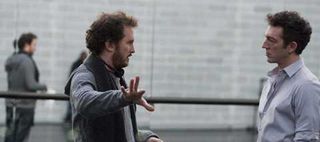
Cassel on Aronofsky as a director
What was his working method like?
VC: He’s pretty simple to work with. He’s pretty demanding in the sense that he does a lot of takes, but usually when he comes and talks to you – it’s always with something short and clear. Some directors, they come and they talk, it doesn’t really help.
He’s asking you for pretty understandable things, [for example, saying] “Why don’t you do it like you were against her?”
And he’s the kind of director who will eventually call you on a Sunday and say “We’re doing a production meeting for the set, and we’re going to talk about your apartment – can you stop by the office so we can choose your furniture?”
He’s very precise – he gives you a great sense of freedom in the sense that your can really come up with stuff, but it’s not like he takes ideas because they look good. If he likes something, he will see how it can fit and eventually let you go with it. It’s not just instinctive.
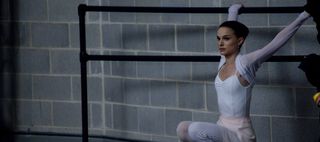
On the intensity of Natalie Portman's part
How did you help Natalie cope with the physical and mental strain?
DA: The mental elements were hard but not nearly as hard as the physical elements. I think she spent a year training - five hours a day. It was very gruelling.
It took a very long time to raise the money, and the movie kept pushing back, and every time we pushed it three weeks I’d go and tell her.
And she was a good sport about it, but now I realize that I didn’t know how much pain she was in. She was like “Another three weeks of almonds and carrot sticks, I’m gonna kill myself!”
So it was very very tough for her to pull off. We tried to surround her with as many quality people that could take care of her as we could.
VC: What Natalie had to do with this move was very demanding – I’m sure she was very happy when the movie stopped, for example, because she took a year of intense ballet training.
In between the takes she was going back to the bar, stretching again, keeping warm - because otherwise when you go back you hurt yourself. So day after day, I couldn’t really interfere – she was so focussed I didn’t want to. I knew she had things to do.
Unlike Mila, who was the ‘cool girl’ of the movie – then there was no problem [for her] to get out of character. I think that what Natalie must have carried away every night was the pain.
As for me, coming out of character? I always do. I’m a non-suffering actor!

Aronofsky and Kunis on the ballet world
Darren, your sister was a ballerina. And Mila, you researched the role. Did you both hear first-hand of the rivalries?
DA: No no, not really. It was completely opposite. [My sister] did ballet all the way as a teenager, and was serious about it. It was something important that I just never understood.
When I started to make feature films I thought it would be an interesting world to explore because it would be fun to figure out what all that was about.
MK: It didn’t take much [research], let me tell you. The rivalries exist pretty visibly. The second you go into the ballet world you see how competitive it is. They don’t try to hide it.
Is it like Hollywood in that respect? It is and it isn’t. In my experiences in the film industry it’s not as competitive. There’s some aspects that are, but not nearly as much as the ballet world. At all.
I can’t even put into words to you how competitive the ballet industry is. I think it’s because it’s incredibly small, and they work their entire lives to try to achieve perfection that’s inevitably impossible. And their career ends at 35, at best.
I think that’s why. It’s a very small [industry] – they’re creatures all of their own kind.
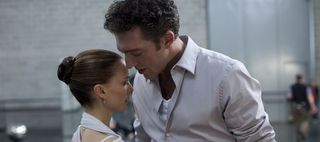
Cassel on his character, Thomas
Did you base Thomas on anyone in particular?
VC: It’s not one person, it’s many people that I’ve met, or read about.
Of people that I’ve met I would say Michael Bennett, who was a director famous from the 90’s. He directed Chorus Line , Dream Girls …a huge Broadway director, and choreographer. He was friends with my step-father, so I had a chance to actually see him work rehearsals with the dancers.
[As for his character in Black Swan ] This guy is my age, more or less; he lives in that huge apartment, by himself; he has no kids; so at the end of the day, the only thing he has is his art form. And I guess that’s why he’s so demanding with it.
I’ve met people like that - A few directors…choreographers; I could see how they would do the tricks. And they’re so dedicated to what they do because that’s the only thing they have, and they think it’s normal to be a jerk. That they have the right to be rough with others.
I’m sure [Thomas] dies to fall in love, but I don’t think he’s somebody capable of falling in love with someone he doesn’t admire. Or somebody that doesn’t fascinate him....I don’t think it’s about getting laid, honestly.
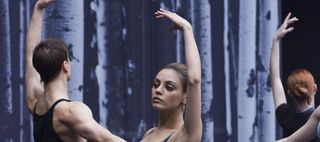
Kunis on learning ballet
Did preparing for this role consume a lot of your time?
MK: Three months before production started we did seven days a week, training four hours a day. And then after training you’d come home and soak in the tub for four hours – so that’s pretty much your day.
I dislocated my shoulder two weeks before production; in the first month of rehearsal I tore my calf ligament. And I have two scars on my back from where Benjamin had to lift me for six hours. I say I have scars – but he had to lift me for six hours so his arms might have fallen off at that point!
I lost [my fitness] the day that we wrapped. It was much easier to stop than start – I had no problems going back to eating! I do not consider myself a dancer. I had never considered myself a dancer, and I probably never will. I have two left feet.
I think I’m fantastic - in the privacy of my home. I think I’m great. I also think I’m a great singer – but you would all disagree!

Kunis on her love scene with Portman
Did being friends with Natalie help in the more intimate scene in the film?
MK: Yeah, it goes for any intimate scene in the film - female or male - it helps if you’re friendly with the person and know them, are comfortable with them. The situation is a lot easier to get through.
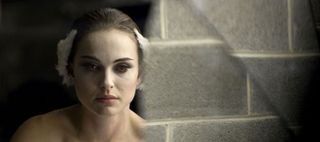
Aronofsky and Kunis on the theme of madness
Black Swan deals with female madness. Did you see it that way, or was it just about human experience?
MK: I don’t know that it has to do with female madness – it has to do with human madness. Anyone can spiral downwards, if they want to pursue perfection – female or male. I really don’t think it makes any difference.
In this case, [Nina's] version of perfection had to do with sexuality, and that was just one of the ways to go about it. But I do think Darren dealt with it beautifully. It didn’t offend me, I hope it doesn’t offend people. And if it does, oh well!
DA: It’s a good question. I think the magic of cinema is that you can make a film about a 55 year old dying wrestler, and then make a film about a 20-something year old ambitious dancer…and if the emotions are real, it doesn’t matter what their sexuality is.
I think we’re all people. I think that female experience, male experiences, those differences are a lot more slight than we make out to be.
There were a lot of women involved in the making of the movie, besides of course the women that star in the film – but I think men can relate to it as well.
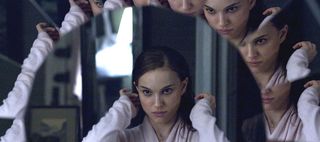
Aronofsky on obsession
The destructive nature of obsession is a theme in your films. Are you aware of where that has come from?
DA: I don’t know. I guess it’s just in there. I could go see an analyst about it…Would I describe myself as an obsessive nowadays? I think I moved past that. I don’t feel that obsessive about film anymore.
I think working with Mickey Rourke kind of changed my take on film-making, because there was no way to really control him. It was more about sticking him in a room with a lot of ‘toys’ and letting him loose and being in the moment with him.
I almost had to become a performer to a certain extent to work with him, and I really enjoyed that part of the process. I now welcome collaboration in a new way.
It’s about setting up a space where you get as many bright, focussed people together, and have a plan but be open to see what happens. That’s especially true for actors and performers, creating an environment where they can do what they want to do.
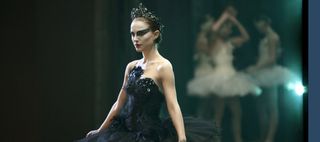
Aronofsky on the Black Swan score
What kind of direction did you give Clint Mansell?
DA: One of the major reasons I did the film was for Clint, because I was excited about how you’d take a masterpiece like Swan Lake and turn it into movie music.
Most people know Swan Lake underneath Bugs Bunny, you know? So I knew it was going to be a big challenge to make it fresh and reinvented for the film.
He just took it and listened to it and deconstructed it; and then reassembled it, and made it scary. Then we recorded it with an eighty piece orchestra and it became its own thing.
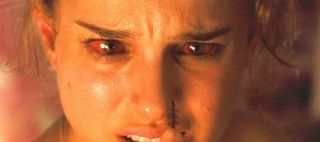
Aronofsky on David Cronenberg
You've mentioned Cronenberg as an inspiration. What appeals to you about his work?
DA: Coming up as a young film-maker, his stuff is just great. His biological horror stuff is unrivalled, and his psychological horror is fantastic. And it’s always smart and different and unique.
He’s an adjective, which is a pretty exciting thing to become.
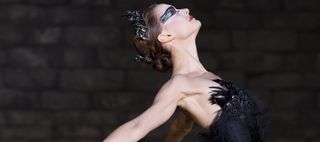
Cassel on Cronenberg
How does David compare to Darren, as a director?
VC: Strangely enough, I think they have things in common; maybe the fascination for the body horror material. The same subject matter, every once in a while.
David is not American at all, he’s actually Canadian, and Darren is not really American – he’s from Brooklyn. But they both have a European quality to what they do. A dark European quality.
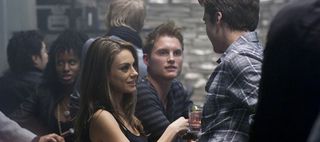
On their future projects
What have you all got coming up? And Darren - you’re down for Wolverine 2 , what’s your vision for that?
DA: What are you talking about? I don’t know what you’re talking about. Never heard of it. You mean the guy with the claws?!
MK: I just wrapped Friends With Benefits [with Justin Timberlake] last October.
VC: I’ve got a bunch of stuff coming out here - one called Our Day Will Come by that young director Romain Gavras. It’s about redheads rebelling against society, and I know that it has been bought by an English distributor so I know it might come out.
And then I have another one which has something to do with England, it’s called The Monk . You know the Gothic novel: Lewis, seventeenth century, set in Spain. It’s going to be in French, so I’m sorry guys!
And then, I guess, A Dangerous Method .
The Total Film team are made up of the finest minds in all of film journalism. They are: Editor Jane Crowther, Deputy Editor Matt Maytum, Reviews Ed Matthew Leyland, News Editor Jordan Farley, and Online Editor Emily Murray. Expect exclusive news, reviews, features, and more from the team behind the smarter movie magazine.
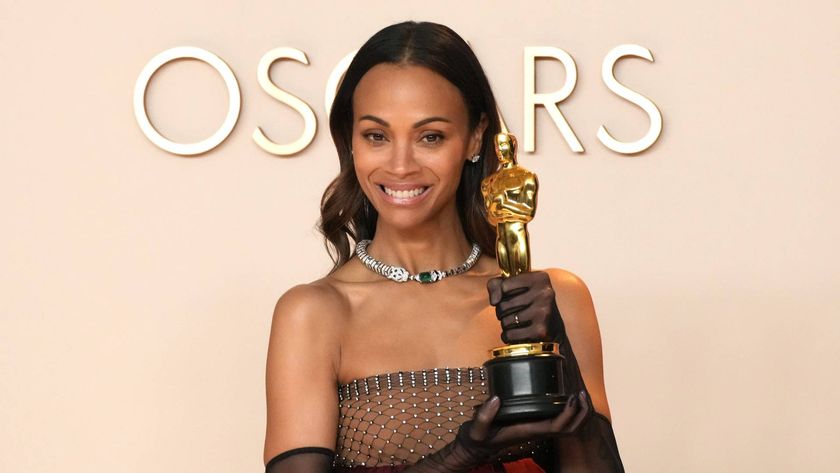
James Cameron responds to Zoe Saldaña's Oscar win: "I was so happy to see Zoe acknowledged as the world-class performer we, in the Avatar family, have always known her to be"
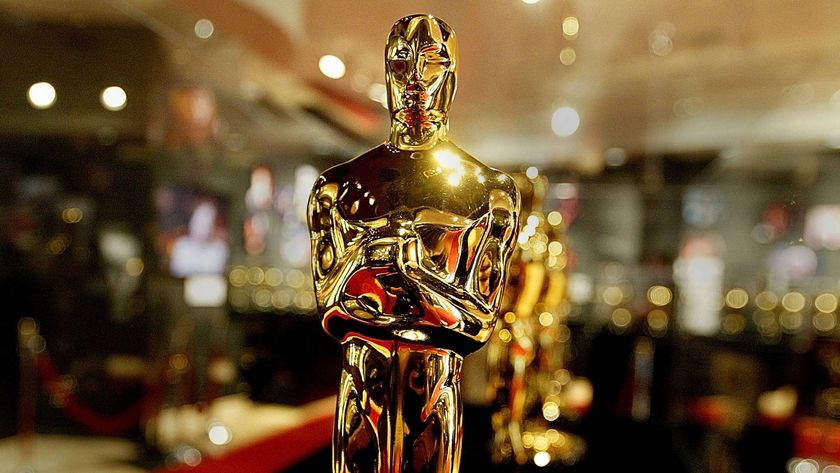
2025 Oscar winners in full: Anora wins big as The Brutalist and Wicked pick up multiple awards

James Cameron responds to Zoe Saldaña's Oscar win: "I was so happy to see Zoe acknowledged as the world-class performer we, in the Avatar family, have always known her to be"

2025 Oscar winners in full: Anora wins big as The Brutalist and Wicked pick up multiple awards



